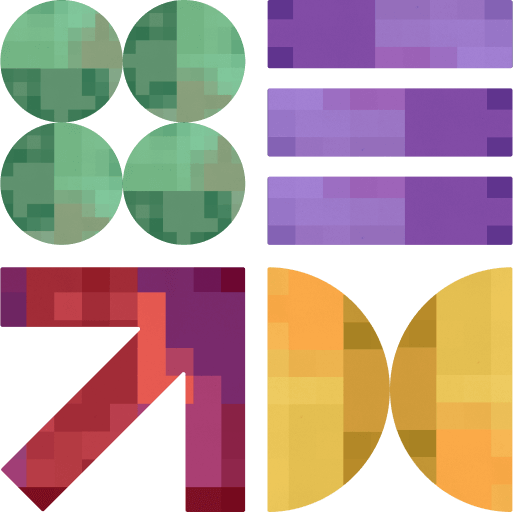7 Strategic Benefits to Automation in Healthcare Industry

Technology is transforming healthcare into a smarter, more connected, and patient-centric system. From AI-powered diagnostics to telemedicine, innovations are reshaping how healthcare professionals prevent, diagnose, and treat illnesses.
One aspect in particular is generating a lot of buzz: automation.
While automation in healthcare industry began in the 1960s, it picked speed in the last two decades. Especially with the rise of AI, robotics, and advanced data analytics.
If you’re yet to tap into its power, let this be the guide to help you take this vital step.
Automation in Healthcare Sector by the Numbers
If you’re interested in automating different aspects of your facility, the following numbers show you’re not alone.
- Precedence Research reports that the healthcare automation market was estimated at $42,24 billion in 2024. This is a $7.8 billion increase from the previous year.
- In the Kingdom alone, AI in healthcare is estimated at $120 million by 2023.
- Therapeutic automation dominates the total healthcare automation market. It generates around 54% of the total revenue, and continues to grow at a CAGR of 9%.
- The automation devices market in Saudi Arabia generated $17.7 million in revenue by 2023. This number is expected to increase to $37 million come 2030.
- According to McKinsey, approximately 30-40% of work in the KSA health sector can benefit from automation.
- The integration of AI in Riyadh’s King Faisal Specialist Hospital & Research Centre (KFSH&RC) reduced laboratory wait times by 52.1. It further decreased pharmacy wait times by 27%, shortened ER length of stay by 6%, and increased ER visit capacity by 21.4%.
- Patients and physicians alike are eager to embrace robotics in healthcare delivery. Around 50-73% have expressed their willingness to have robots perform minor surgeries.
As you can see, the healthcare sector is moving towards automation. And by now, so should you.
💡 Automation in medical field is on the rise in the Kingdom of Saudi Arabia. According to Intelligent CIO, Saudi authorities are investing in training practitioners on how to leverage systems such as eHealth platforms, AI-driven diagnostics and treatment plans, and digital health apps. You can also expect the use of robotics to streamline healthcare processes and fuel innovation across the industry.
The Benefits of Automated Systems in Healthcare
In an industry where every second counts and precision can mean the difference between life and death, automation is proving to be a game-changer. Here’s a closer look at the key benefits driving this technological shift.
1) Precise Diagnosis and Treatment
Automation in healthcare industry, especially with AI-powered tools, is elevating the accuracy of medical diagnosis to new heights.
For doctors, it means having access to advanced imaging analysis, predictive models, and decision-support systems that reduce the likelihood of oversight. For instance, leveraging AI-powered diagnostics has been known to reduce medical data overload and identify early-stage diseases.
As for patients, it translates into faster identification of conditions, earlier intervention, and targeted treatments with fewer trial-and-error approaches. Even opting for mHealth app development can improve non-adherence to medication, which is the cause of 10% of hospitalizations.
This precision not only improves recovery rates, but also builds trust between patient and provider.
2) Personalized Care for Patients
Despite health conditions being well-classified, genetics, reactions to treatments, lifestyles, etc. make patients react differently. That’s why one size won’t fit all.
With automation, healthcare providers can process vast amounts of patient data and design care strategies tailored to each individual.
For patients, this means receiving treatments and recommendations that reflect their unique needs. This, in turn, leads to better outcomes and improved quality of life.
3) Increased Efficiency for Doctors
Automated systems handle time-consuming administrative tasks such as scheduling, medical coding, and prescription refills. While they benefit doctors by allowing them to focus on caring for patients, the biggest benefit is preventing burnout.
Burnout in the medical industry is alarmingly high. Studies show that 40–60% of physicians globally report symptoms of burnout. And the culprits are long working hours, high patient loads, administrative burdens, and inadequate staffing.
What’s worse is that the effects of burnout tend to trickle down to patients and healthcare institutions as well. It impacts patient safety, care quality, and hospital efficiency. Moreover, it’s linked to increased medical errors, lower patient satisfaction, higher staff turnover, and mental health struggles.
With the help of automation in healthcare industry, physicians can reduce the risk of burnout while shortening patient wait times and ensuring that their clinical expertise is directed toward making informed medical decisions.
4) Added Data Visibility
With automation, all patient information can be accessed in a centralized, easily navigable system.
For instance, you can have an Electronic Medical Records (EMR) or Electronic Health Records (EHR). Both systems have revolutionized the way healthcare professionals access and manage patient information.
Instead of juggling paper files or piecing together fragmented histories, doctors can now see a patient’s complete medical journey. They can even get real-time updates from wearable devices.
This added visibility means faster, more informed decision-making, fewer duplicated tests, and better care coordination between multiple specialists.
Patients too benefit from the enhanced visibility. For them, it translates to smoother experiences, more personalized treatment plans, and the reassurance that their healthcare team is working from the same, up-to-date information.
💡 Whether you’re developing an EMR, EHR, or any healthcare app, make sure you get your facts straight. Understanding healthcare app development is key to creating solutions that are user-friendly as well as compliant with strict medical regulations, secure with patient data, and tailored to real clinical needs.
5) Customer Support Automation for Healthcare Organizations
In addition to physicians and patients, automation in healthcare industry can make a difference across healthcare organizations. Especially when it comes to customer support.
Patients now demand fast responses, be it while scheduling visits or airing their health concerns. In fact, 61% of patients have reportedly switched healthcare providers based on how quickly they get appointments.
So, consider streamlining customer support to enhance customer experience. For instance, you can set up chatbots to answer appointment inquiries or provide instant access to medical FAQs.
That way, patients get timely information without long hold times. Meanwhile, healthcare organizations benefit from reduced administrative load and more consistent service quality.
6) Cost Reduction Across the Board
Automation reduces costs in healthcare in three ways –
- Cutting down on labor-intensive, repetitive tasks
- Minimizing human errors that lead to costly rework
- Improving resource utilization
For example, automated billing and claims processing reduce administrative overhead, while AI-powered diagnostics help avoid unnecessary tests.
Moreover, robotic process automation (RPA) streamlines scheduling, inventory management, and documentation. This frees up staff for higher-value work.
Over time, these efficiencies lower operational expenses, improve patient throughput, and allow funds to be reinvested into better equipment, technology, and patient care initiatives.
7) Enhanced Security and Compliance
Considering how heavily regulated the healthcare industry is, compliance is an aspect you can’t compromise on. Implementing automation in healthcare industry can be very helpful in this regard.
Automated record-keeping ensures accurate documentation, while advanced encryption and monitoring systems protect sensitive patient data.
This not only safeguards against cyber threats, but also ensures that organizations meet regulatory standards without excessive manual oversight.
Other aspects you can automate to enhance compliance and security are the onboarding process, incident reporting review process, and claims processing.
💡 Whatever healthcare system you integrate, make sure that it’s future-proof. Your software needs to be scalable, adaptable to emerging technologies, and compliant with evolving regulations. That way, it can continue delivering value as healthcare needs and innovations evolve. Maybe take a look at our seven tips for future-ready healthcare applications development guide for some insight.
Discover Why DPL is Your Ideal Partner for Automation in the Healthcare Industry
If you’re aiming to start your journey toward automation in healthcare industry soon, we’re here to help. We have the experience, expertise, and agility you need to ensure your institution’s success as well as your patients’ wellbeing.
Share your goals with us via the form below, and we’ll come up with a solution to achieve them.




